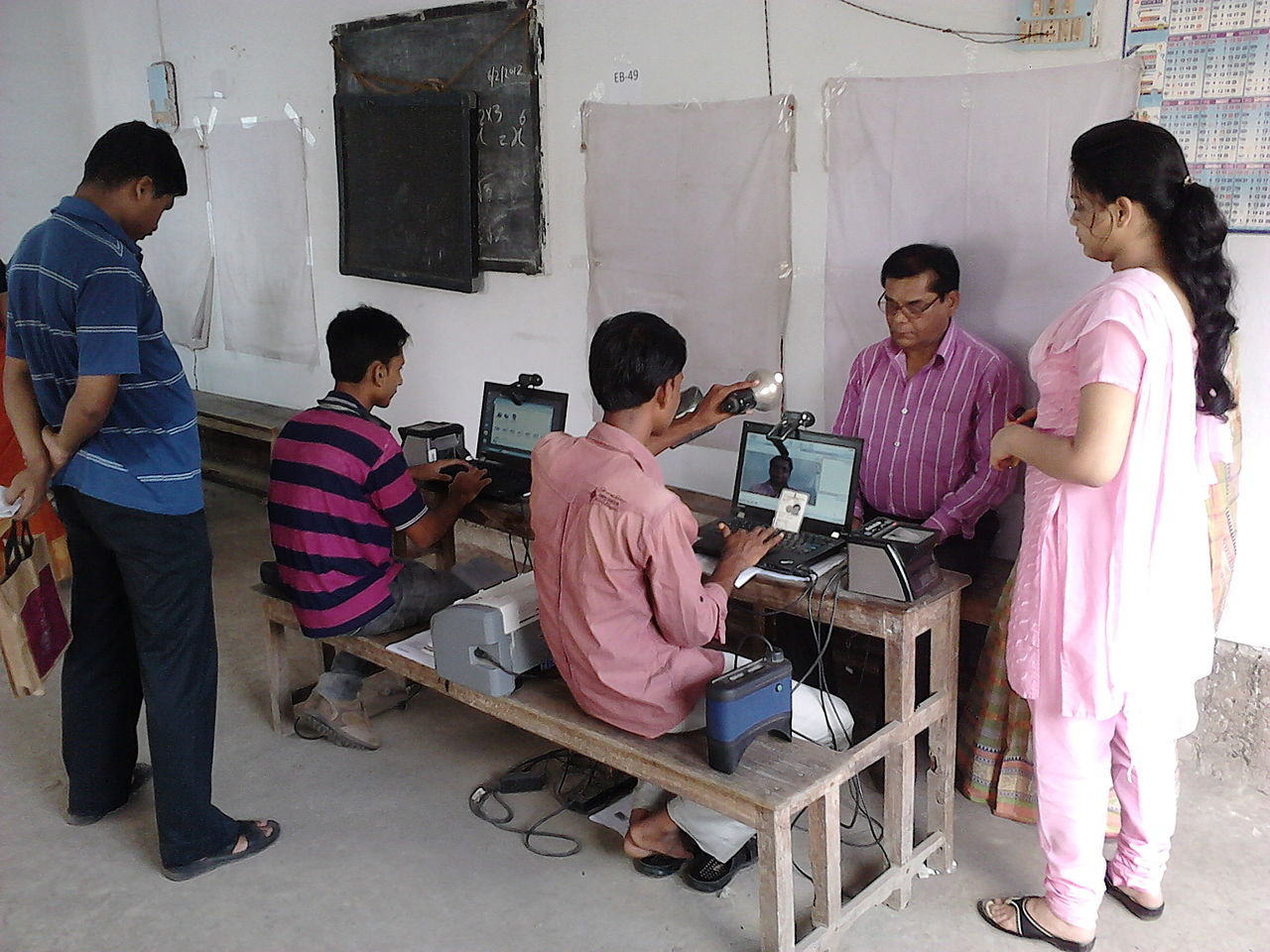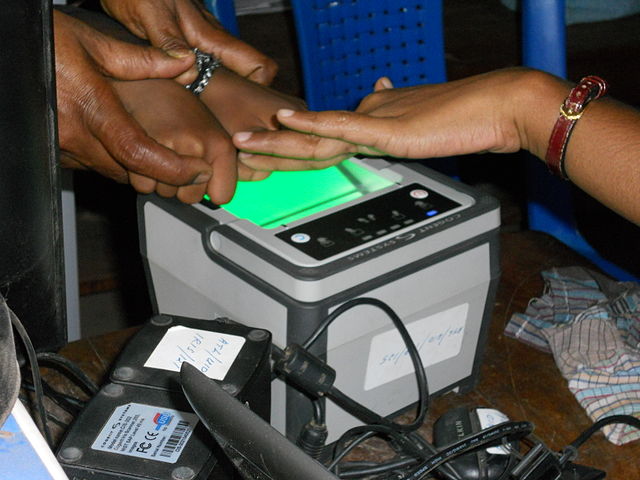Aadhaar: Taking Away the Right We Have Over Our Bodies?
While the Aadhaar debate rages on, another issue that has come to light is that of privacy. Do we have absolute right over our body?

I remember a few months ago standing at the immigration line in Singapore where a German national was ahead of me. When asked to place her fingers on the scanner for her fingerprints to be captured, she refused. Instead of complying with the officer, she was questioning him – “Where is this data being stored? Who has access to the data? How will this data be protected?” It took the supervisor to come and assure her that the data that was being collected is stored securely and would be destroyed within a stipulated time frame. Her questions baffled me and left me thinking.
We give our fingerprints, iris scans, so many KYC details freely and at will, without any questions or concerns about how they are stored, who can access them, etc. Have you ever thought about it?

Photo Source: Wikimedia Commons
Just last week, there was a major leak in which the bank details of several million Indians is said to have been leaked as per a report published by the Center for Internet Security (CIS). Since the time Aadhaar cards (2009) have been introduced in India, there has been a whole range of debates and discussions around these issues. As of March 2017, an estimate of 113 crore Indians are said to have submitted all the required information and gotten themselves an Aadhaar number. Meanwhile, there has been no communication to citizens on the government’s data security measures to reassure them of the sanctity and security of the data. Moreover, the government has recently communicated to the Supreme Court that a citizen does not have absolute right over one’s body.
You may also like: A Letter to PM Modi From an Elderly Man Whose Fading Fingerprints Can’t be Verified for Aadhaar.
“There aren’t enough safeguards. It is an unknown territory we are entering into. We don’t know what it is going to be used for, how it going to be used and what the safeguards will be,” says Advocate Rahul Kumar who practices in the Supreme Court of India.
In hindsight, it should not have been surprising that the German national was paranoid about her biometric data. The Europeans extend the courtesy of data security and respect of one’s biometrics, even to visa seekers. While fingerprinting of applicants for a visa is compulsory, one aspect, which is interesting, is children below the age of 12 do not need to submit biometrics.
Their logic is simple – a child is not in a position to make a decision about willingly submitting biometric details. For Aadhaar, it is compulsory for all to submit the biometrics, regardless of the age.

Photo Source: Wikimedia Commons
Advocate Kumar went on to say, “The government’s stand is clear – there is no option but to enroll for the Aadhaar card. Up until now whether one wanted to avail the Aadhaar card or not was purely a choice and linked to the various welfare schemes that the government introduces. So not having an Aadhaar number would only mean that one could not avail the benefits of the schemes. However, post July there will be penal consequences of not having an Aadhaar card and hence it is becoming imperative to enroll for it. I will be unable to file my tax returns, my PAN card gets revoked, and my bank account can be potentially closed, so it no longer is voluntary.” Aadhaar is taking dimensions which were not envisaged, and is treading into unchartered territories.
You may also like: We’ve Answered Every Doubt You’ve Ever Had About the Aadhaar Card
Taking on the Aadhaar project has been a huge task for India. Reports suggest that the state and central exchequers have saved close to Rs 36 crore due to the implementation of the Aadhaar cards. It is also said that once everyone registers, the scope for better deployment of welfare schemes and savings will multiply. There are obvious positives of a non-duplicatable, unique ID for every citizen. It does help immensely in delivering government services, reduces fraud, tax evasion and is a good way to deliver targeted benefits to citizens without leakages and frictional losses.
However, it is an uncharted territory and the government needs to understand that not all voices of apprehensions are about evading the Aadhaar net for the wrong reasons – and that there are real, genuine concerns that the citizens have about the sanctity, usage policies and security of such a powerful tool.
Click here to know more about the Aadhaar initiative.
Like this story? Or have something to share? Write to us: [email protected], or connect with us on Facebook and Twitter.
NEW: Click here to get positive news on WhatsApp!

Similar Story

Startup’s Innovation Could Help Millions Get Access to Better Brain Health At Home
Ivory, a pioneering age-tech startup founded by Issac John and Rahul Krishnan, aims to redefine the ageing experience by focusing on better brain health, through neuroscience-backed assessments, interactive games, and personalised solutions.
Read more >
If you found our stories insightful, informative, or even just enjoyable, we invite you to consider making a voluntary payment to support the work we do at The Better India. Your contribution helps us continue producing quality content that educates, inspires, and drives positive change.
Choose one of the payment options below for your contribution-
By paying for the stories you value, you directly contribute to sustaining our efforts focused on making a difference in the world. Together, let's ensure that impactful stories continue to be told and shared, enriching lives and communities alike.
Thank you for your support. Here are some frequently asked questions you might find helpful to know why you are contributing?


This story made me
-
97
-
121
-
89
-
167












